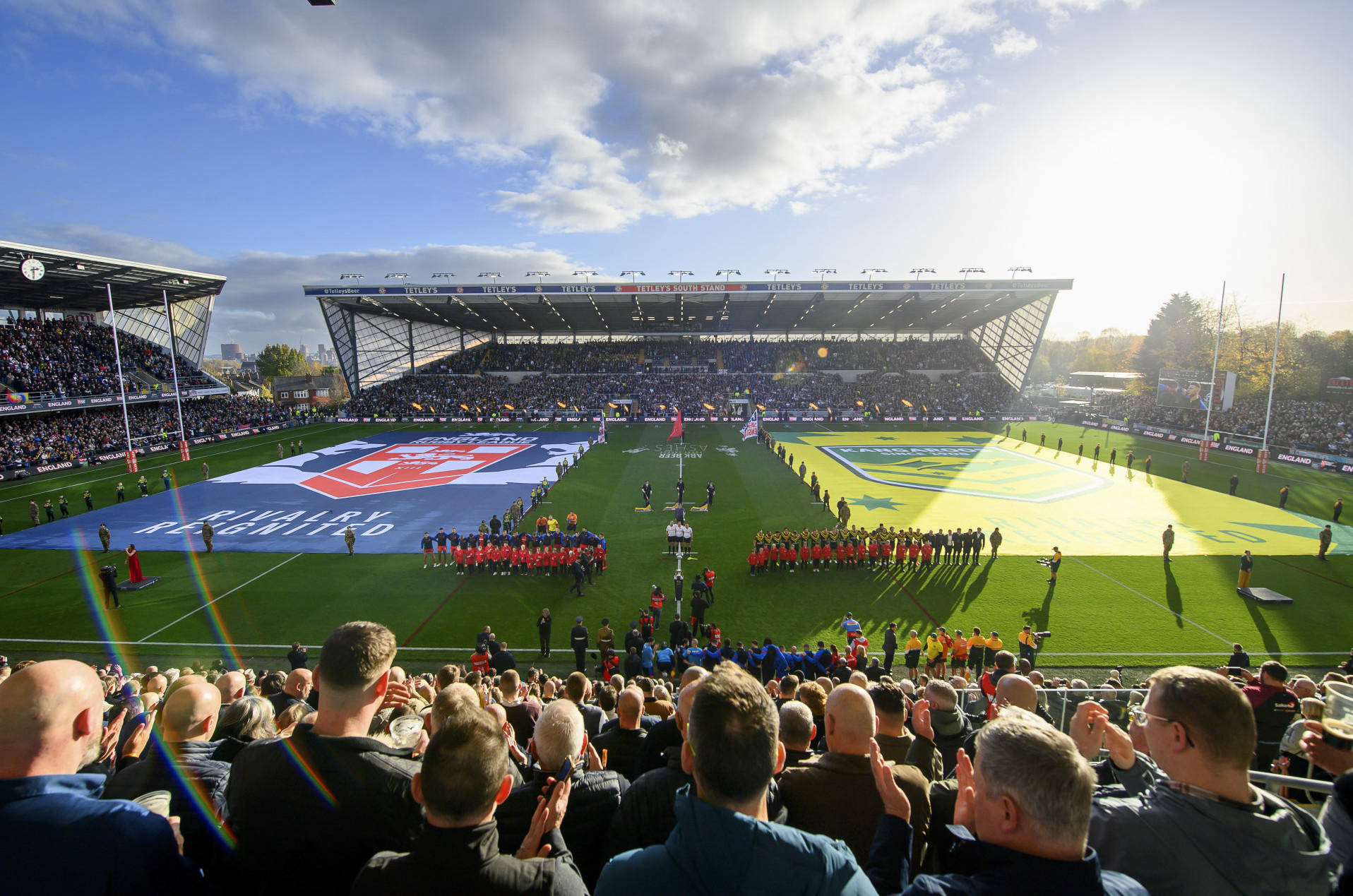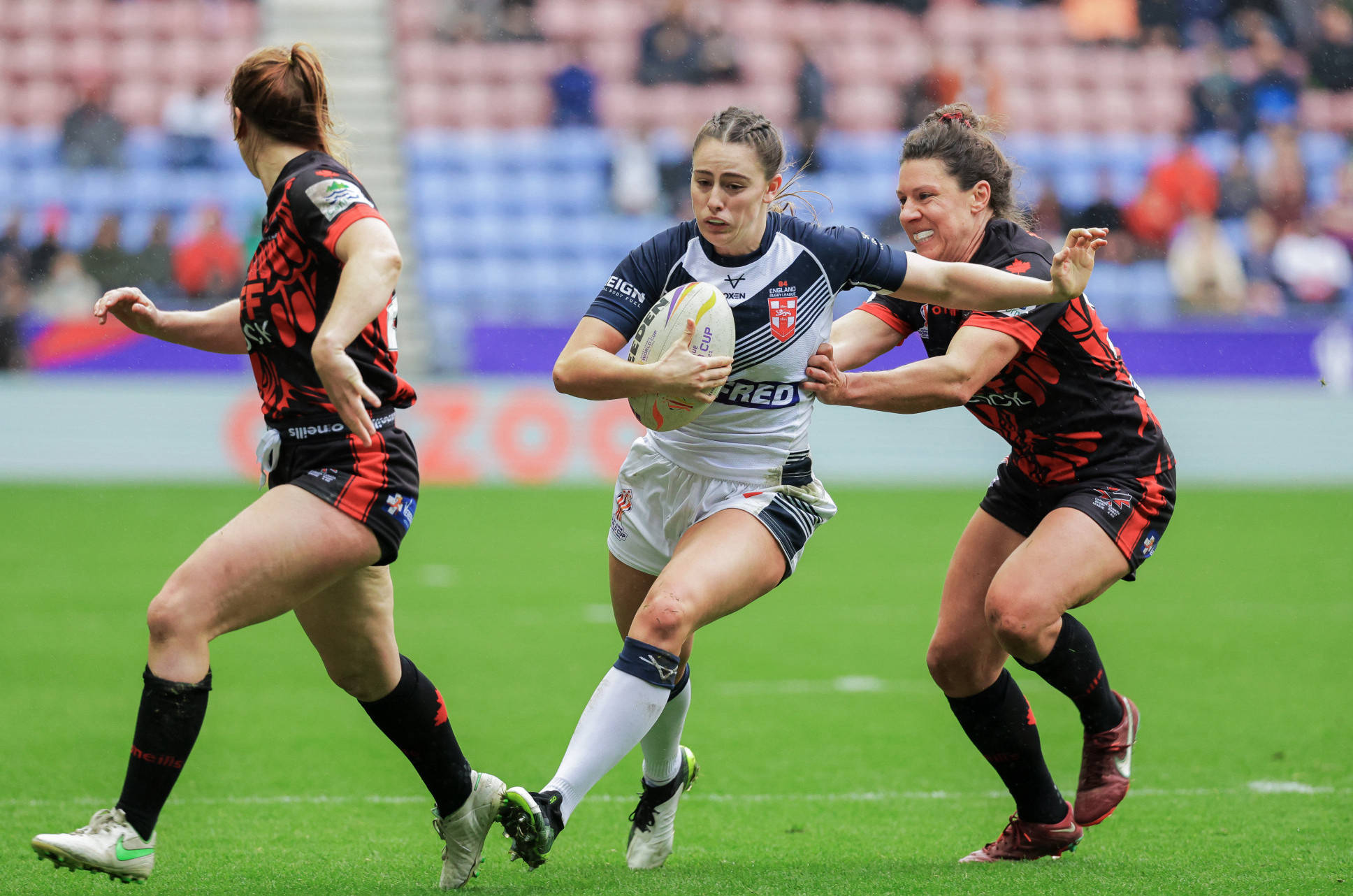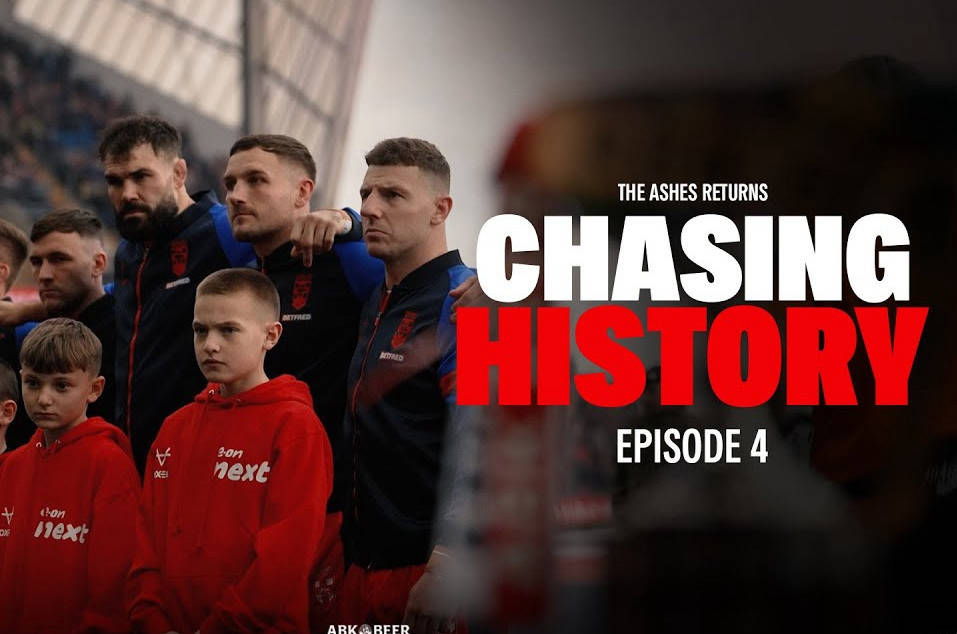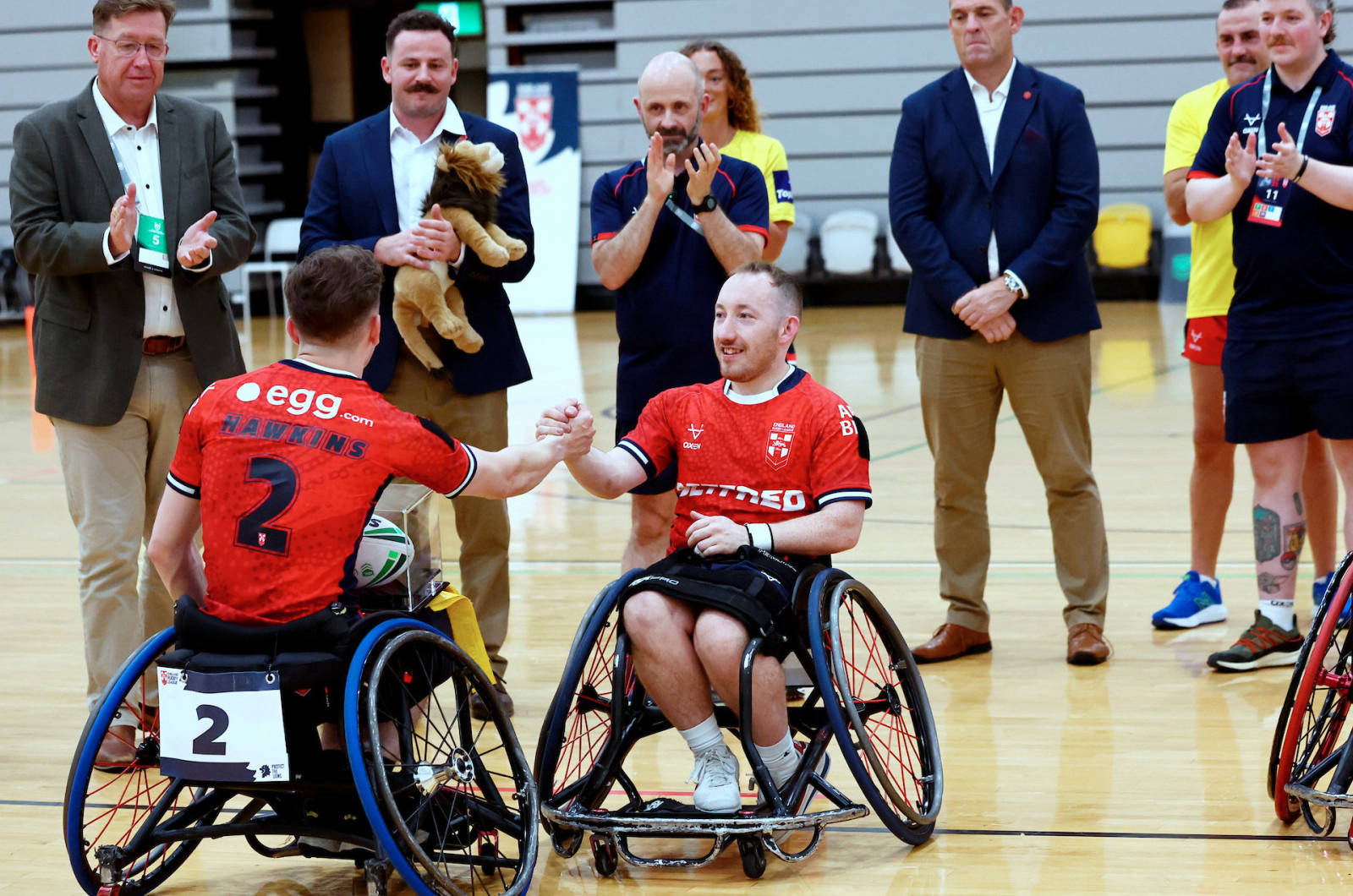8 Jun 2025
Lion hearts - a look back on Great Britain's 1990 Ashes victory against Australia at Wembley
Thirty-five years ago, Wembley played host to one of the sport’s most memorable internationals. Ahead of this year’s Ashes return to the stadium, NIGEL WISKAR looks back on an unforgettable clash.
WHEN you look at the teamsheet for Great Britain’s 1990 victory over Australia at Wembley, three names stand out.
Ellery Hanley, Martin Offiah and Garry Schofield - two MBEs and an OBE there - were the standout players and household names of a generation.
And yet whenever that game is mentioned, another name much less celebrated is the first to come to my mind.
Paul Eastwood played on the right wing that day, preferred over one Jonathan Davies he tells me, and for a humble lad from Hull it was a shock to get the nod.
Eastwood recalls: “It was a call out of the blue. I actually heard about my selection from a local radio station.
“I knew I was playing well at the time but never in my wildest dreams did I think I’d get called up.
“My kicking may have helped. I think the only person back then that compared was Frano Botica.”
When you watch back Great Britain’s 19-12 victory today - Eastwood contributing 14 points - it’s packed with memories.
French referee Alain Sablayrolles’ moustache, Lee Jackson’s headband, Schofield’s white wrist strappings and the magnificent mullets of Steve Hampson and Des Hasler.
The Wembley advertising hoardings scream BOOZE! Ads for Carling, Carlsberg, Castlemaine, Smirnoff and Tennent’s dominate.
The rules were different too. You could strip with more than one in the tackle, tap to yourself at the play-the-ball and clips around the head went unpunished.
Substitutes seem like an afterthought with Shaun Edwards not even coming off the bench for GB.
Coach Mal Reilly waits until midway through the second half before introducing prop Kevin Ward, his shorts vying with Offiah’s for the tightest in town.
Reilly’s counterpart Bob Fulton knew his significance. He coached Ward to Manly’s 1987 Grand Final win, the last year before the Queensland teams entered the competition.
Fulton waits even longer to bring on the ‘Brick with Eyes’ Glenn Lazarus, who should have been on his honeymoon after getting married days before the Kangaroos’ flight left Australia.
Goal kicker Eastwood is responsible for hoofing it into touch after penalties, something a half-back would now do.
That Australian side, 37 games undefeated on these shores, had some all-time great names too.
Led by Mal Meninga, a second half try scorer, the backline had the likes of Ricky Stuart and Andrew Ettingshausen.
Bob Lindner, once of Castleford and Oldham and now an optometrist, is immense. His performance defines the role of loose forward.
Hull coach John Cartwright starts the game after playing against St Helens and Wigan. He was dropped for the rest of the series.
Allan Langer is relatively anonymous and was also dropped for the remaining Tests in favour of Cliff Lyons.
But one would later be immortalised in an Action Man figure called Alfie and star in an advert for Tip Top bread with his mum Rita. It wasn’t Cliff.
“I remember wedging in to try to stop Meninga,” says Eastwood with a laugh and then a pause. “I just bounced off him like a rubber ball.
“What a legend he was. I was a player, Meninga was a legend.”
You can’t downplay Hanley’s contribution that October afternoon.
He’s virtually in every frame when you play the game back, the ultimate talisman on vision that is square not widescreen like today.
Hanley was the man the Aussies feared after he had lit up their competition with Balmain Tigers and Western Suburbs in the two years before the match.
His team talk before kick off went like this.
“I am going to hunt and destroy their runners today. I will carry the ball into them more than I have ever done before, so give me the ball,” he said.
“I will make at least two line breaks so get with me and finish them off.”
Those words were extraordinarily prescient.
At one point when the Kangaroos’ own talisman, Meninga, threatens to rumble through it’s Hanley who is there to hammer him to the ground.
His scrambling defence is epic and that characteristic crab-like sideways run is deceptive and deadly.
It’s one of those runs that leads to the first try, ghosting wide with seemingly nothing possible and then accelerating through the despairing hands of Paul Sironen - a headband-sporting giant who dwarfs his two Super League-playing sons.
Hanley almost reaches the line but from a quick play-the-ball, Lee Jackson feeds Eastwood who crashes over.
He remembers: “I always used to say, ‘I’m the best winger from five yards’. For a winger, you do the hard yards and I think I was a hard yards winger.”
Hanley sets up the second try too with a bomb that full-back Gary Belcher can’t handle and from the spillage, Offiah dives over.
And then the third member of the honours list trio has his moment.
Schofield eyes the flat Aussie defence, chips with his right foot, collects with his left hand and feeds Daryl Powell who fires out a perfect pass for Eastwood to bundle over in the corner for his second.
Eastwood remembers: “It was a great, quick ball from Daryl and obviously I’ve still got to shake off Michael Hancock. What a player.
“I scored two tries against Hancock, one of the best in the world at the time.”
Powell, now Wakefield coach, remembers his significant part in the contest.
He says: “I had a hand in Paul Eastwood’s try in the corner so that was a massive game. I was so nervous. I have only ever taken sleeping tablets once before a game and that was the game.
“I couldn’t sleep. It was a huge game - looking at their centres, Meninga and Mark McGaw, they were huge individuals and there was me and Carl Gibson on the other side, probably the smallest international centre pairing going around, so it was an interesting battle.
“The Aussies were a very experienced team. But you walk out there - and it was that long walk then, over the end of the track - and it was just booming.
“The noise was special, the crowd were all up so it was a huge, intimidating atmosphere, for every player.”
It was Eastwood’s first and only game at Wembley and while he regrets never climbing the famous stairs it was a poignant moment for his family.
“My dad Brian was working in Saudi Arabia,” he says. “He was lucky enough to get time off to come and see me. He only had three days.
“Being able to share it with him and my mum was fantastic.
“They used to take me to training as a kid and to be able to walk into the bar afterwards and share it with these people who had done so much for me and see their faces was magic.”
He adds: “Mind you the players did go to that Stringfellows place later on so it wasn’t the quietest of nights.”
Reilly stuck with him for the rest of the series, an agonising 14-10 late loss at Old Trafford and a relatively comfortable 14-0 third Test defeat at Elland Road.
He says: “Mal was an extraordinary coach. He had been there and done that and was the hardest player in rugby league.
“He had a simple plan and everybody understood that plan and he got his message across.”
Down Under two years later Reilly played Paul Newlove on the wing in the first Test defeat but turned to Eastwood for Great Britain’s second game in Melbourne.
He kicked six from seven goals as GB and their all-Wigan pack spanked the Kangaroos 33-10 in a game as memorable as that Wembley win.
Eastwood is now 59 and married to a girl from St Helens where he has lived for over 20 years.
He’s a sales director for an industrial heating company and like many players of that era other than full-time Wigan, always had a career outside rugby.
He suffered a heart attack last August, has had two stents fitted and the day we speak has seen a medic for a check-up.
But he sounds fit, healthy and somehow irrepressible and boasts, with some surprise, of enjoying two weeks of sunshine in his adopted town.
As our chat winds up he admits, laughing, he has missed four Teams calls at work.
I wonder how many of the people waiting to speak business with him know of his part at Wembley and Melbourne - two of the greatest sporting memories in many fans’ lifetimes.
He says: “I’m a businessman and I work hard and come back to my family.
“But I can look back and say I played with Peter Sterling when I was 17 and I had Schoey as my centre at Hull.
“I played against Brett Kenny and Wally Lewis - but I’m just a normal kid from a scruffy street in Hull.”
My memories of that Kangaroo tour are many, some as a journalist but always as a fan of the game in thrall to tourists who appear to have landed from another galaxy.
I remember renting a seat cushion on a freezing Tuesday night in Halifax, numbed by a wooden seat.
Ettinghausen’s hat-trick in the opening game at St Helens punctured a dream and I was mesmerised by the sidestep of an 18-year-old kid called Brad Fittler at Wakefield.
But one player stands side-by-side with those greats for his efforts that day at Wembley.
Paul Eastwood. Just a lad from a scruffy street in Hull.
This piece appeared in the official match programme for the Betfred Challenge Cup Finals and the AB Sundecks 1895 Cup Final – available to purchase here for £10.
The famous Ashes Series will once again return to a famous Wembley later on this year (Saturday 25 October) for England and Australia's eagerly anticipated first Test. Tickets are available HERE.
This is the only remaining chance for sports fans to see the return of the Rugby League Ashes after a 22-year absence, with the Second Test at the new Everton Stadium on Saturday November 1 and the Third Test at AMT Headingley on Saturday November 8 SOLD OUT.




